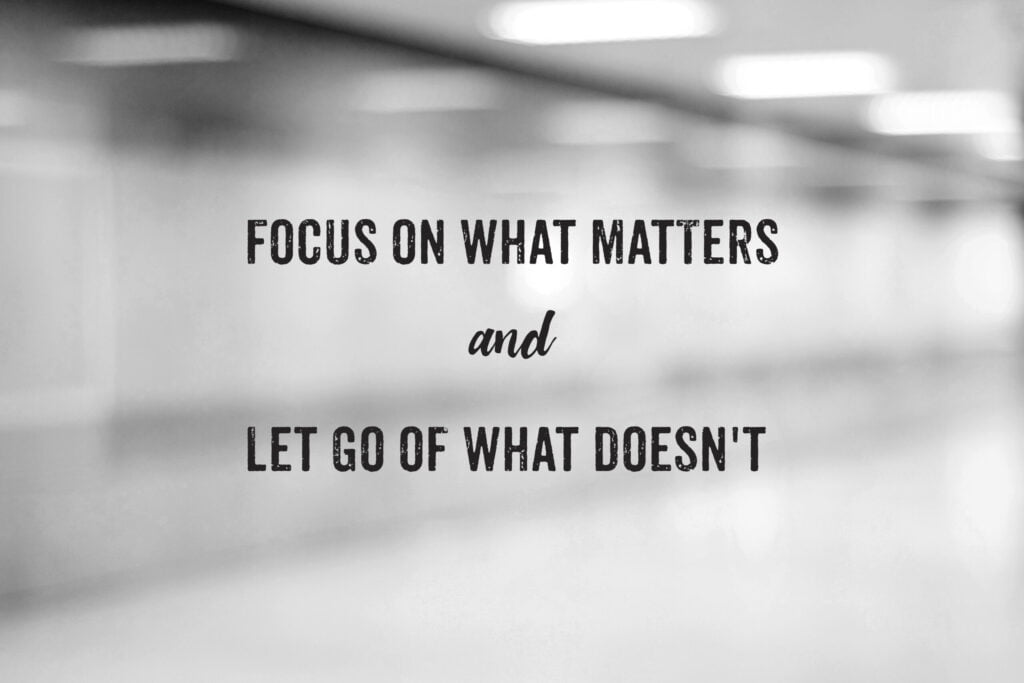
Feeling disappointed with results is a common challenge. We have high expectation of ourselves, of others, of results, and sometimes reality doesn’t meet those expectations. It can be very disappointing, disheartening and even downright frustrating.
Having high expectations is a good thing as it can drive us to achieve more. We know we should set our goals so they are challenging, maybe even a little scary, but also within the bounds of what we believe we can achieve with the right effort and focus. Often, we set those expectations with the belief that anything less than perfection is not good enough.
Even when we deliver a positive outcome, if it’s not as good as we expected, we often focus on what we didn’t do, what we didn’t achieve, what isn’t perfect, and lose sight of what we actually have achieved. We can be extremely hard on ourselves and others for the failure!
All this can result in disappointment and frustration, sometimes of epic proportions.
So, if you ever find yourself in that space where your expectations are not being met, which will happen from time to time, here are a few things to consider so you don’t fall into the downward spiral of disappointment, frustration and regret.
1. Recognise and appreciate what has actually been achieved.
When we set our expectations of what we want to achieve and then don’t fully achieve that expectation, we find ourselves spiralling downwards because we failed in reaching our goal. We did well, but just not well enough. This can result in us never really feeling happy or successful, because we beat ourselves up for not doing better/ working harder/ focusing more etc.
If we take a step back and look at the reality of the situation we might realise that we have actually achieved some very positive results, albeit not the ‘expected’ outcome. Even if we didn’t get very far at all we can learn from the experience, so we can improve next time!
So, rather than beating ourselves up and wallowing, a more productive approach is to focus on what we have achieved and feeling good about it. We can then recognise our own efforts, appreciate the effort of others and the result we achieved. It’s important to show appreciation to those involved for their effort. Starting from the energy of appreciation sets us and our teams up to move forward with a positive focus on success.
2. Keep it real
Great leaders see things as they are, not worse, not better but as they really are. They look at the reality of what has transpired since they set the expectation. They reflect on what was actually achieved and what blocked progress, so they can plan for it next time.
As a leader, we also need to consider how we can best support the people around us to achieve the result. When things don’t pan out as we’d like, it’s helpful to consider what we could have done better or more of to increase the likelihood of achieving the desired outcome. Could we have provided more support to the team? Did we simply expect too much of someone? Did we provide the required resources and a suitable environment to succeed? Was the timeframe just too short given the overall workload and complexity of the task?
Asking yourself and others empowering questions will uncover powerful learning. Remember every failure is another step in the process of continual improvement.
3. Is perfection the issue?
By setting our expectations too high we make it extremely difficult for ourselves and our teams to be successful. There’s a difference between a stretch target and shooting for Mars! If our targets are just too far out of reach, the most likely result is disappointment and frustration. Then we beat ourselves (or others) up for the failure.
If you find yourself consistently setting overly ambitious targets, it’s useful to build a plan before you commit to the target and break down how you are going to get there. This way you can put a level of realism in place as to how complex and risky the target is before you and the team commit to it. Building a plan also provides milestones along the way to celebrate your progress and adjust expectations if external factors impact progress.
Using a combination of these strategies will drive a more positive outlook for you and the team to move forward with confidence.
Gain more leadership insights, tips, tools and strategies by joining our free Facebook Group: The Energised Business Leader
